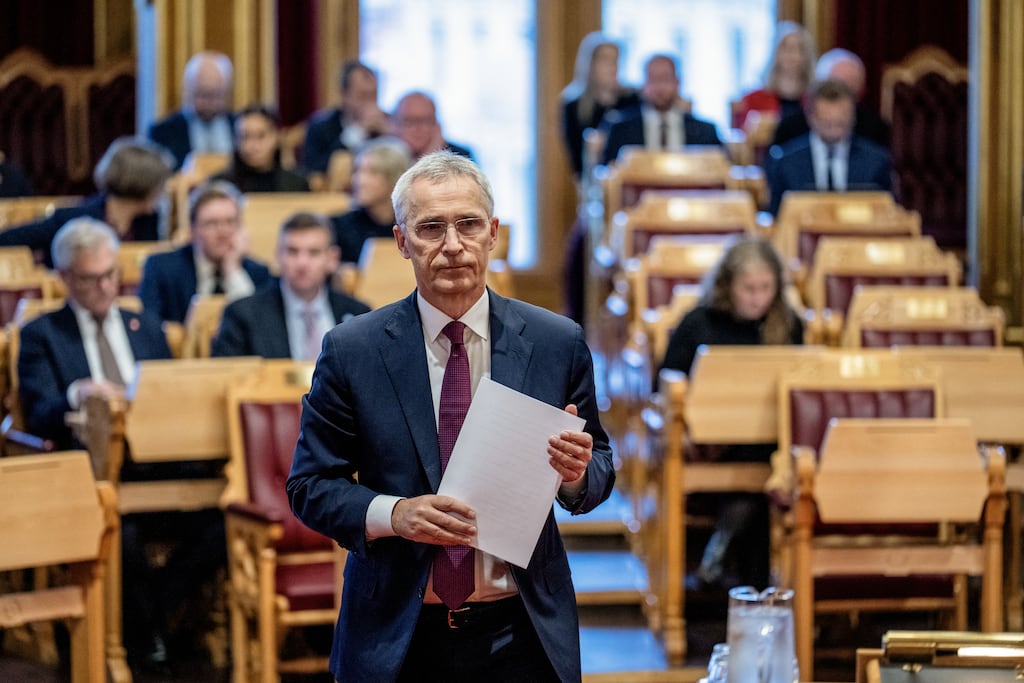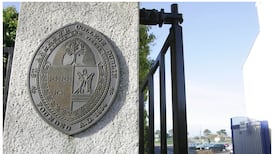Norway has suspended its ethical investing rules to avoid its $2.1 trillion (€1.8 trillion) oil fund being forced to sell out of Amazon, Microsoft and Alphabet due to their work for the Israeli government, according to its influential finance minister.
Jens Stoltenberg said that the US had publicly conveyed its concerns after the world’s largest sovereign wealth fund sold out of Caterpillar after its bulldozers were used in the Palestinian territories.
Norway’s centre-left government pushed an urgent proposal through parliament on Tuesday, putting the work of the independent ethics council on hold.
Mr Stoltenberg said the ethics council had planned soon to look into technology companies such as Amazon, Microsoft and Google owner Alphabet, as well as those on a UN blacklist issued in July.
READ MORE
The report, by United Nations (UN) special rapporteur Francesca Albanese, states that the three tech giants “grant Israel virtually governmentwide access to their cloud and artificial intelligence technologies, enhancing data processing, decision-making and surveillance and analysis capacities”.
Mr Stoltenberg said: “It is obvious that there is a possibility that the existing framework can lead to a decision by an independent body to withdraw from some of the largest companies in the world. That would undermine the purpose of the fund to be a broad, diversified global investment fund.”

Tom O’Brien of Nephin Energy on the importance of gas, the potential of biomethane, and whether our energy bills will come down
The oil fund has faced a tumultuous few months over its holdings in Israel, leading it to sell out of half of its Israeli holdings as well as Caterpillar under heavy political and public pressure in Norway over the war in Gaza.
The existing arrangement has involved the oil fund’s ethics council giving recommendations on whether to sell out of a specific company to Norway’s central bank, which houses the fund and takes the final decision on whether to divest.
Mr Stoltenberg said he was worried that selling out of one of the US tech giants – the biggest seven of which make up more than 15 per cent of the fund’s equity holdings – would harm its status as an index fund and threaten Norway’s welfare state. The fund contributes about a quarter of the country’s annual budget.
The proposal only passed with the support of the two largest opposition centre-right groups. Leftwing politicians – needed by the government to pass the budget – were scathing about the move.
“It means that if you are a big enough company, you can do whatever you want,” Arild Hermstad, leader of the Greens, said.
Kirsti Bergstø, leader of the Socialist Left party, said in a separate interview: “Norwegian politics should not be guided by [US President Donald] Trump’s fearmongering. I am concerned that the Norwegian government is now making decisions to accommodate him and tech oligarchs, rather than its own population and the moral conviction of not investing in genocide.”
Mr Stoltenberg also said that the upcoming review of the fund’s ethical guidelines would also consider whether it should be able to invest in more defence companies. The likes of Boeing, Airbus, BAE Systems and Lockheed Martin have been off-limits because they make parts for nuclear weapons.
Mr Stoltenberg, the former head of North Atlantic Treaty Organisation (Nato), said that Norway enjoyed the nuclear umbrella of the western defence alliance and that Oslo had just signed a £10 billion (€11.4 billion) deal with BAE for warships.
“This is at least a paradox. For all these reasons, the time has come to go through these ethical guidelines ... we face serious dilemmas, being one of the biggest sovereign wealth funds in the world,” he said. “There are no easy answers to these questions. But we need to handle them better than we have done so far in the ethical guidelines.”
The fund’s ethics council welcomed the review, adding that it had noted the “political disagreement” about companies connected to Israel and Gaza. – Copyright The Financial Times Limited 2025













